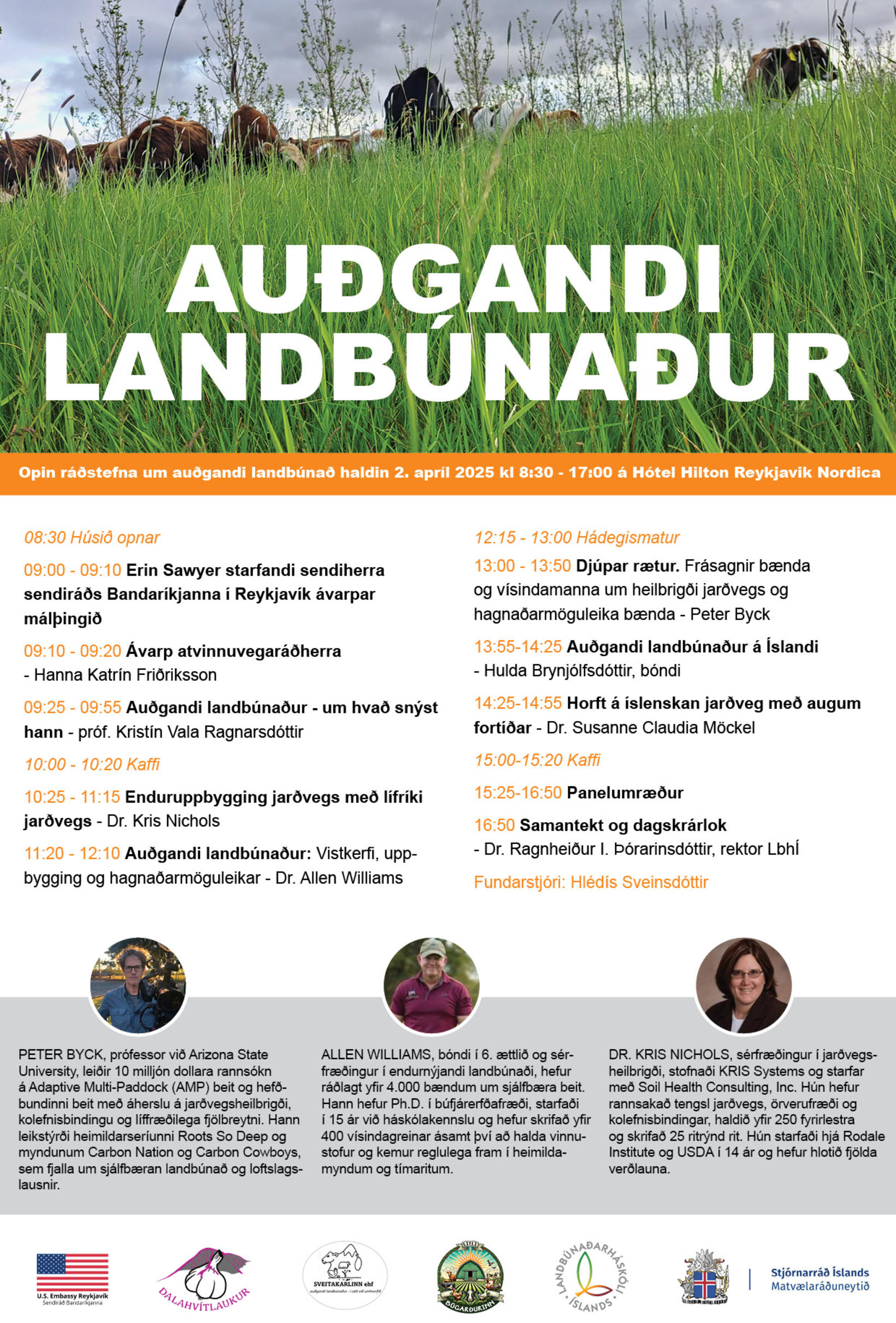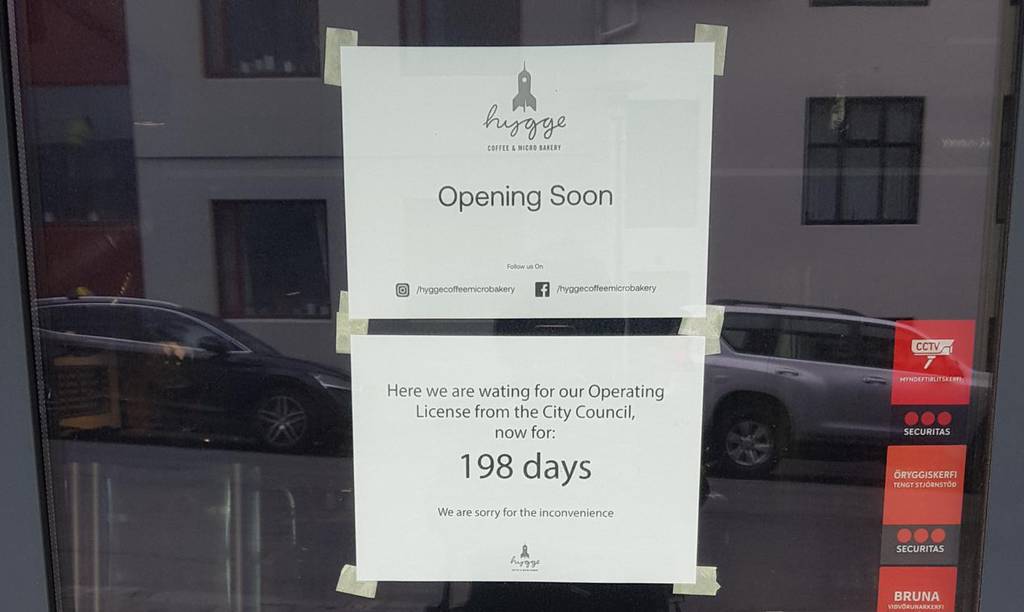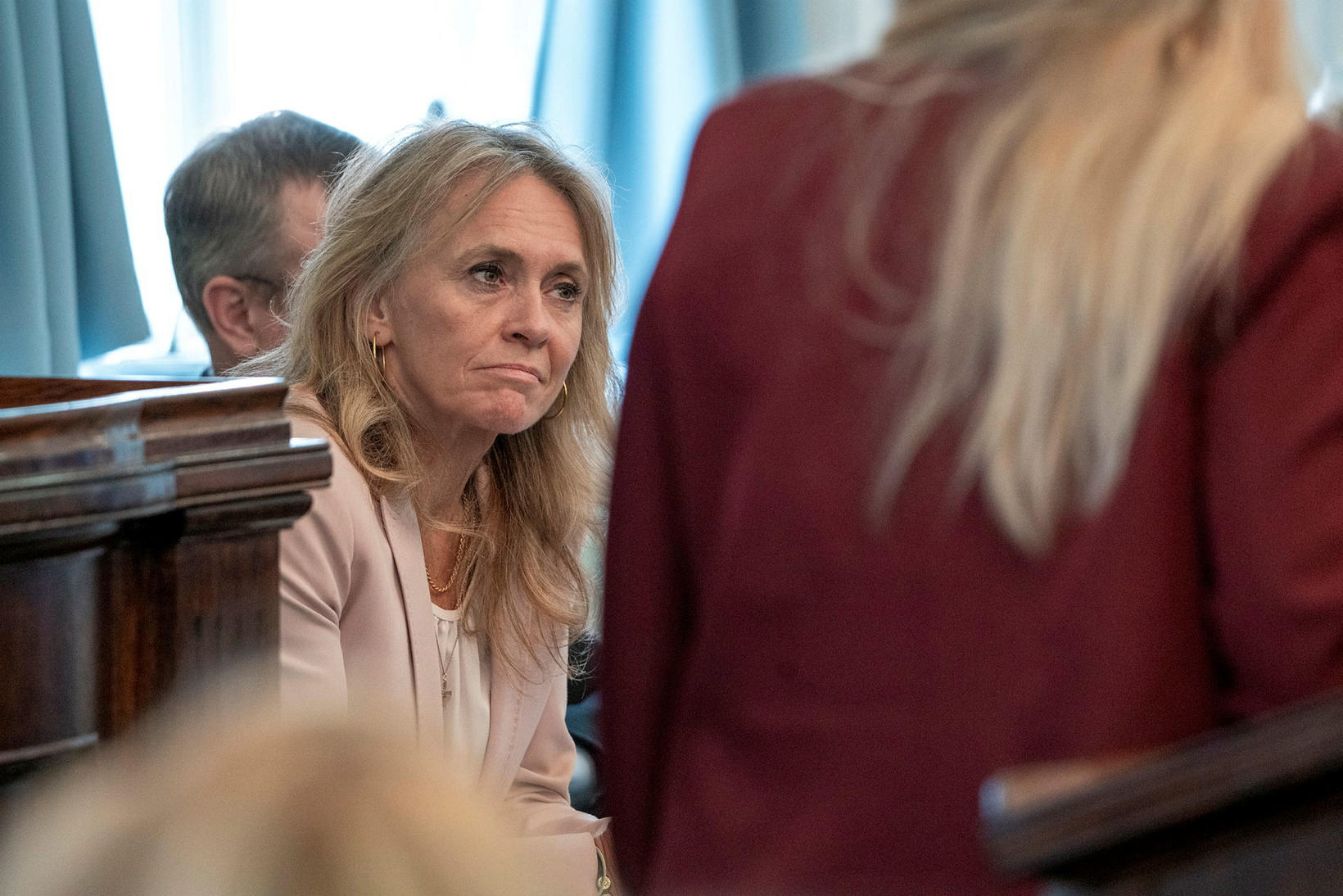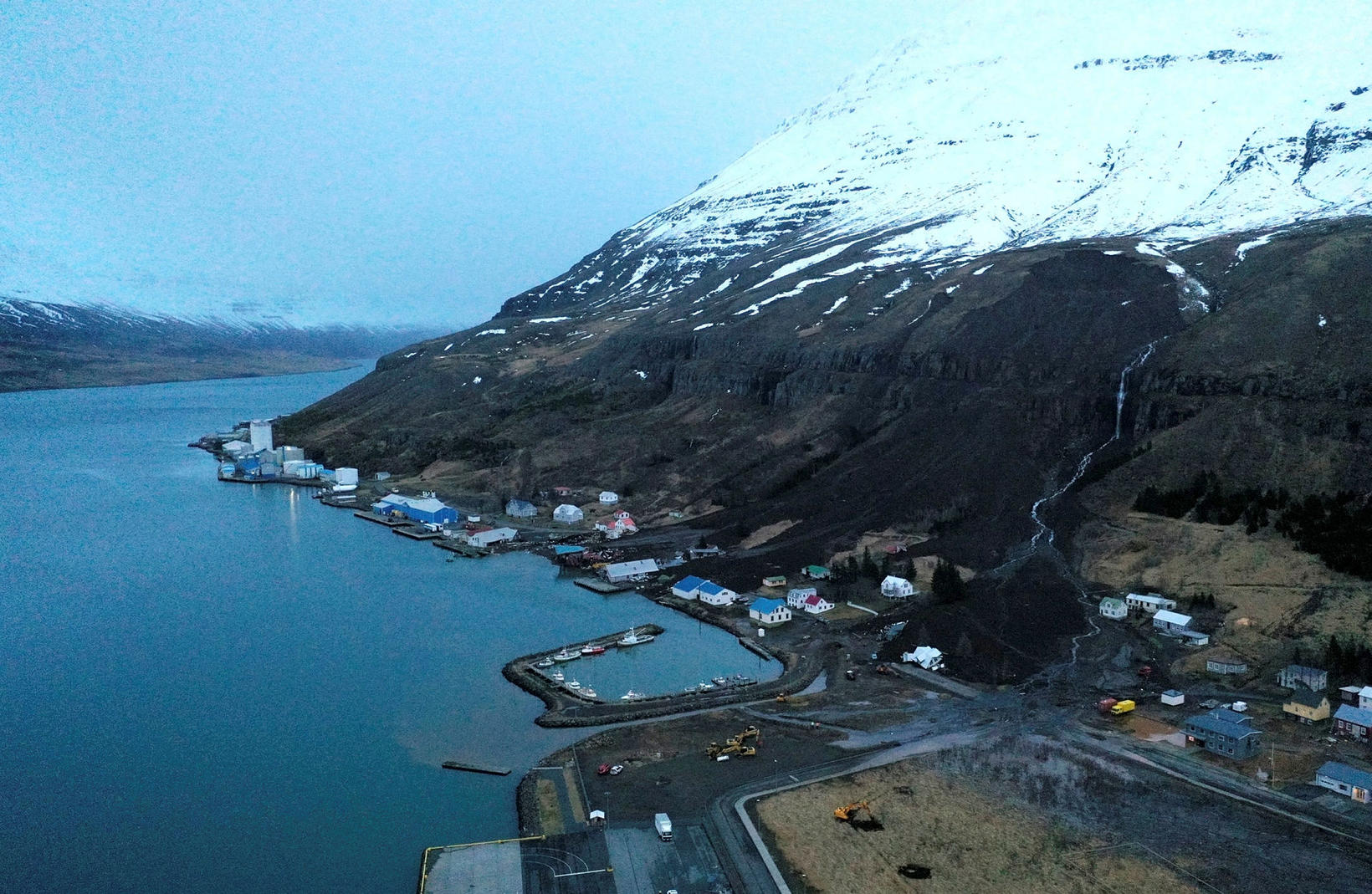Holding a conference on enriching agricultural

The Conference enriching agriculture will be held on April 2 at Hilton Reykjavik Nordica.
The announcement of the event says that enriching agriculture is a way to build the health of the soil by utilizing the natural processes of nature. Learning to work with nature, rather than against it, benefits us all, the soil, the water, the air, the plants, the animals and the people.
The announcement also states that the health of the soil can be renewed by understanding how the country works through the four ecosystem processes – energy flow, water cycle, nutrient cycles and social activity.
Enriching agriculture is therefore the way to carbon the food system and make agriculture tolerate climate shocks. It will not happen unless we succeed in making it commercially attractive to farmers. Farmers must be a priority as key parties in our fight against climate change.
Speakers of the seminar
Peter Byck, director, producer and screenwriter Carbon Nation, is among the speakers of the seminar. Byck recently joined Arizona State University, both in the Sustainability Department and the Cronkite School of Journalism.
Dr. Allen Williams also gives a lecture, family farmer and founding member of Grass Fed Insights, LLC, Understanding AG, LLC and Soil Health Academy.
Then Dr. Kris Nichols also with a lecture. She is a leader in the movement to renew the soil for healthy food, people and planet. She is now the founder and chief scientist of Kris (Knowledge for Regeneration and Innovation in Soils) Systems Education & Consultation and subcontractor at Soil Health Consulting, Inc.
There will also be lecturers from Iceland. There are Professor Kristín Vala Ragnarsdóttir, Hulda Björnsdóttir farmer and Susanne Claudia Möckel lecturer at the Agricultural University.
In the end there will be a panel where the audience will have the opportunity to ask all lecturer questions.
Circumstances will be as before
The press release states that according to the United Nations Food and Agriculture Organization (FAO), enriching agricultural agricultural systems that improve, among other things, water and air quality, increases the biodiversity of ecosystems, producing nutritious food and carbon to reduce the effects of climate change.
These farming systems are designed to work in harmony with nature and maintain and improve economic efficiency.
Loss of fertile soils of the world and biodiversity is a fatal threat to future performance. According to soil scientists, the reduction in food supply is characterized by lower nutrition and losses on important trace elements, as well as damage to public health. In the future, there will no longer be sufficient cultivable vegetation to feed mankind.
Enriching agriculture leads to healthy soils, which can produce high quality, nutritious foods at the same time as it improves land and eventually leads to fertile farms and healthy communities and economies. Farming needs to be looked at in a holistic way, which involves ecological and organic farming practices. For example, to reduce soil disorders, use epithelial vegetation, switching, grinding, grazing management and grazing land, to increase food production, increase farmers’ income and especially to improve the upper part of the soil.
According to the press release, the benefits of this method include lower costs for farmers, lower fuel consumption, increased top of soil, increased carbon binding into the soil (climate improvement), soil becomes organic, hydropower is better. Conditions will actually be as they were 80 years ago.








